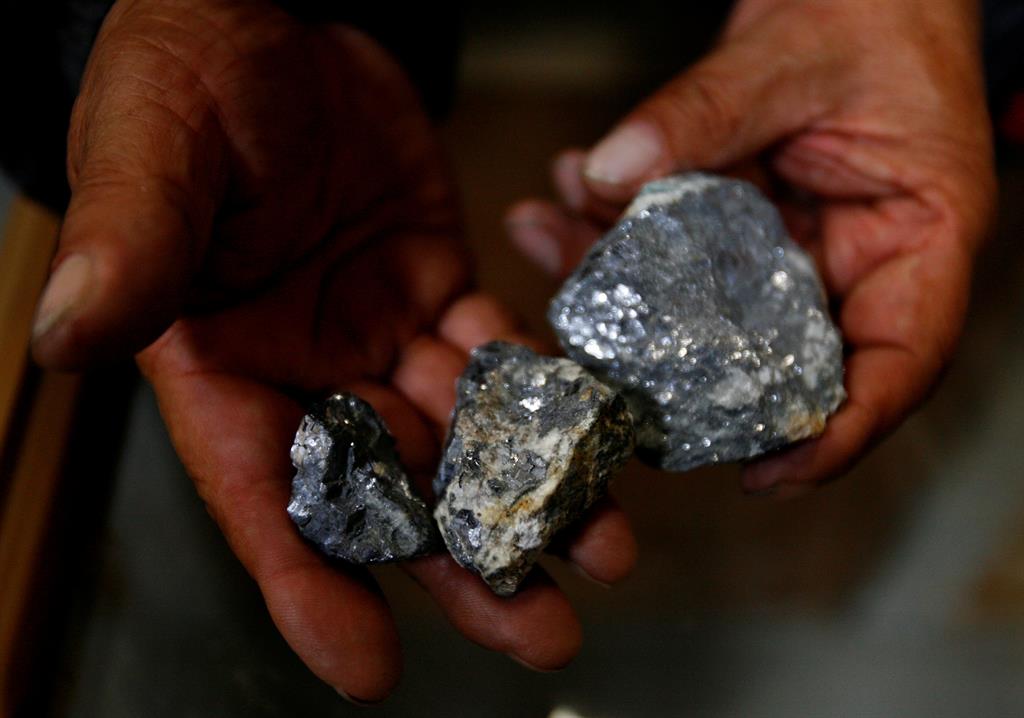Zinc shrinks mining jobs
About 96% of the mining workforce employed in 2020 were Namibians.
Jo-Maré Duddy – Operational mining member companies of the Chamber of Mines of Namibia last year provided direct permanent employment to 8 147 people, 818 or 9% less than in 2019.
Total direct permanent employment by these companies were last this low in 2015, when the number stood at 8 259.
Releasing its latest annual review yesterday, the Chamber attributed the loss of jobs mainly to the closure of the Skorpion Zinc mine. In 2019, the mine had 490 permanent employees. It plummeted to 40 last year.
Skorpion Zinc was placed on care and maintenance in April 2020. This, however, was not as a result of the Covid-19 pandemic, the Chamber pointed out.
“As per its life of mine plan, the operation was initially scheduled for closure in May 2020 due to depletion of the orebody. Safety concerns regarding multiple slope failures lead to the early closure of the mine, and approximately 1 700 [direct and indirect] employees were affected,” the Chamber said.
In addition, North River Resources placed the Namib Lead and Zinc mine on care and maintenance due to its adverse operational environment during the pandemic, as well as financing challenges.
According to the Chamber: “The lower prices of zinc and lead early in 2020, and the Covid-19 restrictions that were enforced during the initial lockdown, rendered the continuation and ramp-up of operations unviable. The confined underground environment made social distancing impractical.”
A total of 129 permanent employees were retrenched in the process.
TAX, LOCAL SPENT
In total, the mining industry directly employed 14 591 individuals in 2020, an 11% drop in the number of permanent jobs compared to 2019.
“The direct employment consisted of 8 361 permanent employees, 902 temporary employees and 5 172 contractors. Applying a conservative mining multiplier of 7, the mining industry created 101 045 jobs, which is a sizeable portion of Namibia’s workforce,” the Chamber said.
The Chamber pointed out that every job created by the mining industry generates an important source of revenue for government through personal tax and value-added tax (VAT) as a consumption tax. Last year, employees from mining companies paid a recorded N$1.25 billion in pay-as-you-earn (PAYE) tax.
About 96% of the mining workforce employed in 2020 were Namibians, according to the Chamber. “The majority of the wages and salaries bill, amounting to N$6.06 billion, circulated within, and benefited the local economy,” it added.
Moreover, the mining industry maintained its high local expenditure component which amounted to N$12.305 billion, the Chamber said.
Total direct permanent employment by these companies were last this low in 2015, when the number stood at 8 259.
Releasing its latest annual review yesterday, the Chamber attributed the loss of jobs mainly to the closure of the Skorpion Zinc mine. In 2019, the mine had 490 permanent employees. It plummeted to 40 last year.
Skorpion Zinc was placed on care and maintenance in April 2020. This, however, was not as a result of the Covid-19 pandemic, the Chamber pointed out.
“As per its life of mine plan, the operation was initially scheduled for closure in May 2020 due to depletion of the orebody. Safety concerns regarding multiple slope failures lead to the early closure of the mine, and approximately 1 700 [direct and indirect] employees were affected,” the Chamber said.
In addition, North River Resources placed the Namib Lead and Zinc mine on care and maintenance due to its adverse operational environment during the pandemic, as well as financing challenges.
According to the Chamber: “The lower prices of zinc and lead early in 2020, and the Covid-19 restrictions that were enforced during the initial lockdown, rendered the continuation and ramp-up of operations unviable. The confined underground environment made social distancing impractical.”
A total of 129 permanent employees were retrenched in the process.
TAX, LOCAL SPENT
In total, the mining industry directly employed 14 591 individuals in 2020, an 11% drop in the number of permanent jobs compared to 2019.
“The direct employment consisted of 8 361 permanent employees, 902 temporary employees and 5 172 contractors. Applying a conservative mining multiplier of 7, the mining industry created 101 045 jobs, which is a sizeable portion of Namibia’s workforce,” the Chamber said.
The Chamber pointed out that every job created by the mining industry generates an important source of revenue for government through personal tax and value-added tax (VAT) as a consumption tax. Last year, employees from mining companies paid a recorded N$1.25 billion in pay-as-you-earn (PAYE) tax.
About 96% of the mining workforce employed in 2020 were Namibians, according to the Chamber. “The majority of the wages and salaries bill, amounting to N$6.06 billion, circulated within, and benefited the local economy,” it added.
Moreover, the mining industry maintained its high local expenditure component which amounted to N$12.305 billion, the Chamber said.





Kommentar
Allgemeine Zeitung
Zu diesem Artikel wurden keine Kommentare hinterlassen